What’s the most common way pros clean windows? Ever rocked up to a job with your squeegee, T-bar wand, and water-fed pole system, only to end up knee-deep in grime on double-hung windows during a heatwave? Welcome to the life of professional window cleaners. We’ve scrubbed everything from high-rise panels to dust-caked windows on country pubs. And while there are dozens of ways to tackle a pane, spoiler alert: it still involves that trusty old squeegee — but with some modern twists.
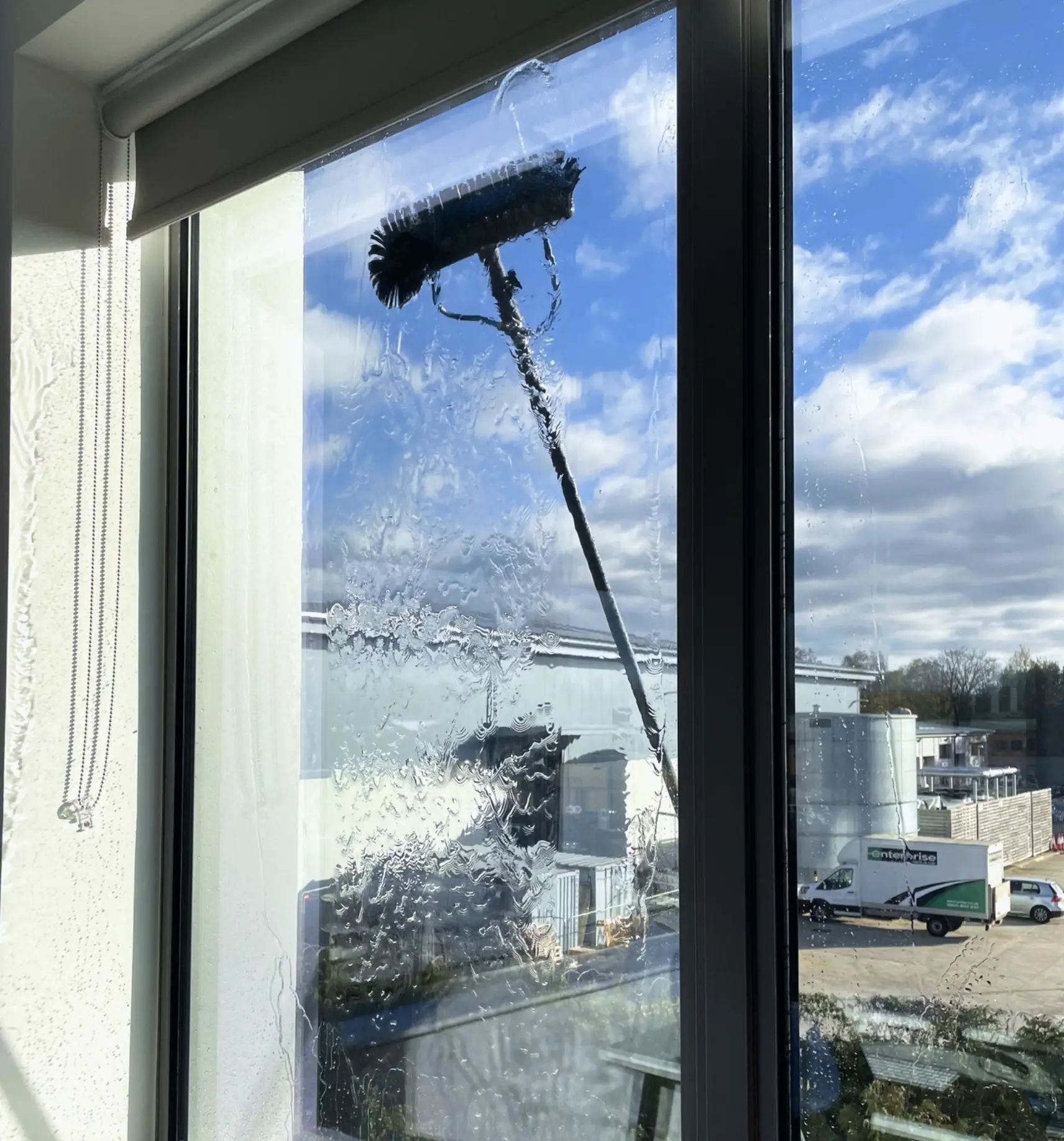
Essential Tools for Professional Window Cleaning
Whether you’re sprucing up commercial windows on a high-rise or tackling outdoor windows covered in layers of dust, one thing’s certain — every professional window cleaning service has its go-to tools. And surprise, surprise — the humble rubber squeegee is still the most commonly used weapon in our window-cleaning arsenal.
But don’t be fooled — modern jobs call for more than just elbow grease. From water-fed poles to pure water systems, we’re working smarter and safer than ever — with results that leave you with streak-free, sparkling windows and the kind of natural light that makes an office or home feel like an attractive space.
What’s in a Pro’s Kit?
Standard Cleaning Gear:
- High-quality squeegee and squeegee blade
- T-bar wands and scrub brushes
- Microfibre cloths (never rough cloths, we’re not savages)
- Warm water, soapy water, or a mix of dish soap and white vinegar
- Purified water, distilled water, or plain ol’ bottled water for spot-free rinsing
- Extension poles, telescopic poles, or full-blown cherry pickers for those tall windows
- Safety harnesses, rope access equipment, aerial work platforms, and protective equipment for working at heights
- 5-gallon plastic bucket (or rectangular bucket if you prefer more room to swish)
We use all sorts of gear to keep exterior surfaces clean and safe, whether we’re washing windows on an aged care facility during routine maintenance or battling mineral buildup on glass panes exposed to construction dust in a new commercial space.
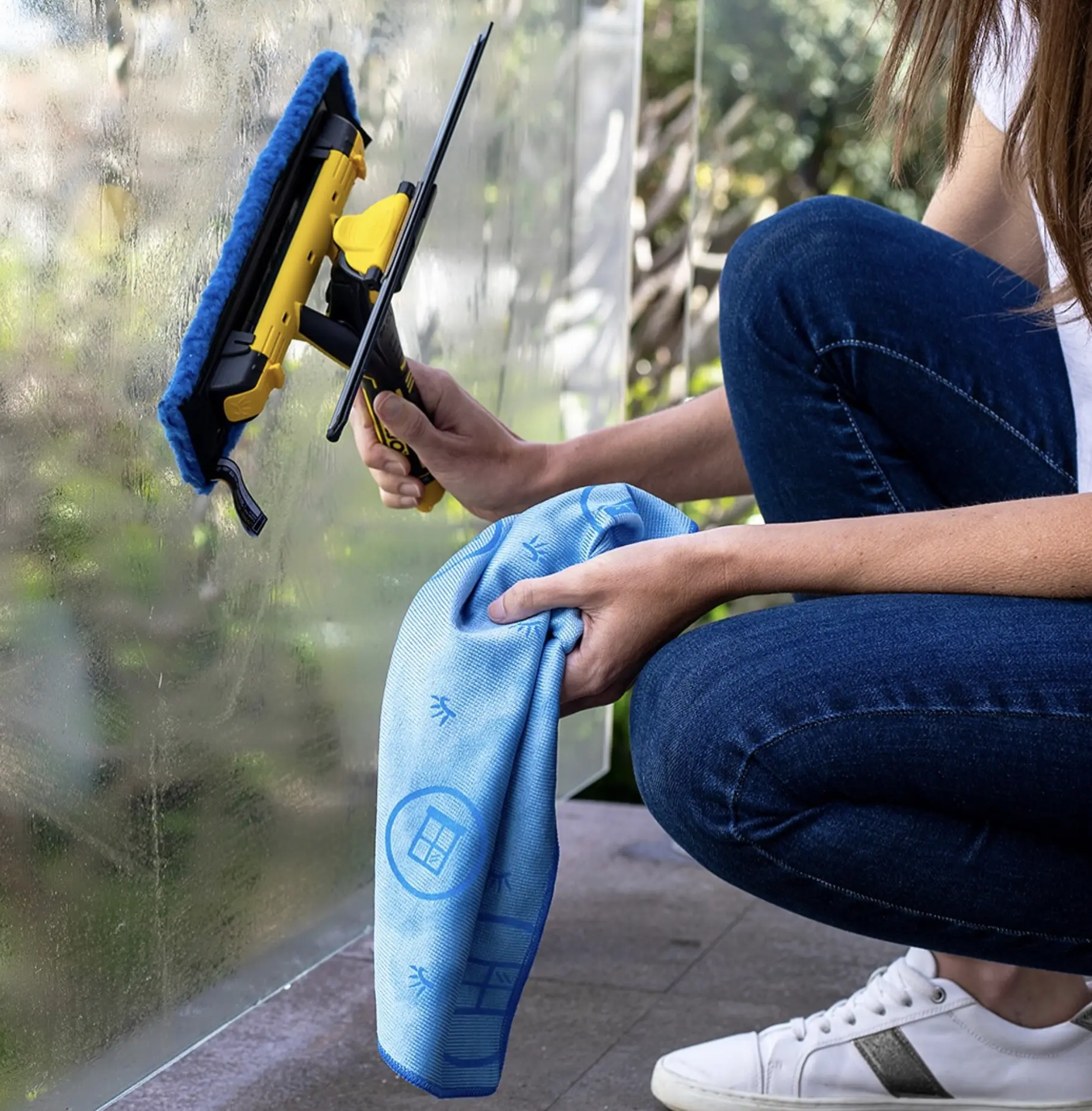
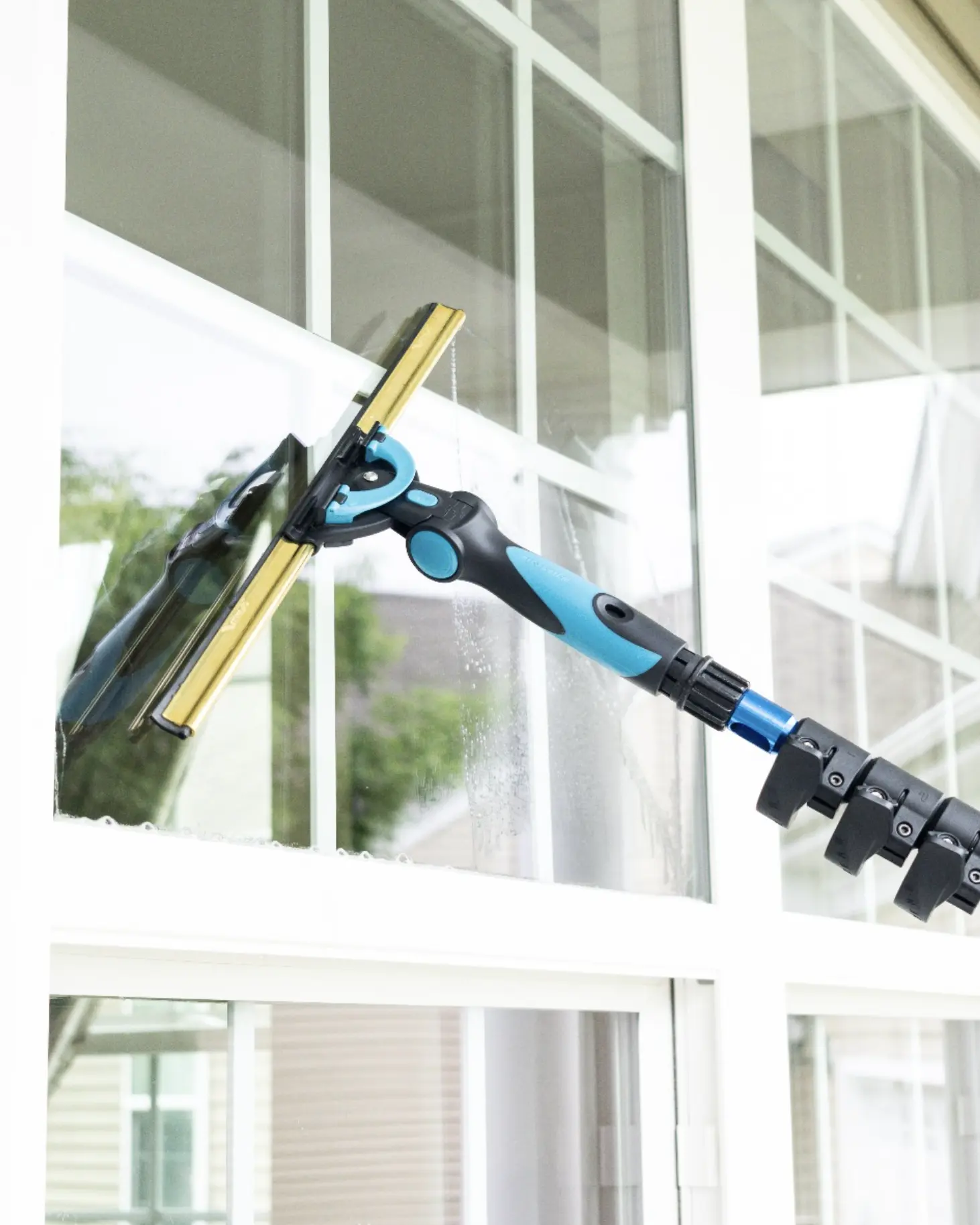
Squeegees: Still the Tradie’s Best Mate
Despite all the gadgets, the rubber squeegee is still king. It’s fast, simple, effective, and great for achieving that streak-free finish everyone expects. We’ve cleaned windows with vinegar, tackled window streaks, and tested every homemade window cleaning solution you can think of — but nothing beats a skilled hand and a clean squeegee blade.
The benefits of the squeegee method:
- Perfect for indoor windows, glass panes, and window frames
- Easy to control for precision work on tempered glass
- Works a treat on bow window replacement jobs where the glass curves slightly
- Reduces excess water build-up and eliminates those pesky water spots
Whether we’re doing High-Rise Window Cleaning, strata jobs, or a window cleaning business tidying up residue on glass surfaces, squeegees remain our go-to for a streak-free clean.
Pure Water Fed Pole Systems
You’re not going to clean a 10-storey high-rise building with a short ladder and a prayer. Enter: the pure water-fed pole system. Using purified water or distilled water, this advanced method removes the need for chemicals and leaves glass gleaming without a wipe-down.
It’s the popular method for:
- Commercial window cleaning on tall buildings
- Exterior window cleaning of glass facades
- Jobs with poor ladder access or safety concerns
No pressure washing needed, no soap, no residue. Just windows are clean and safe for professional window washers using proper safety tools and safety considerations like safety ropes and harnesses.
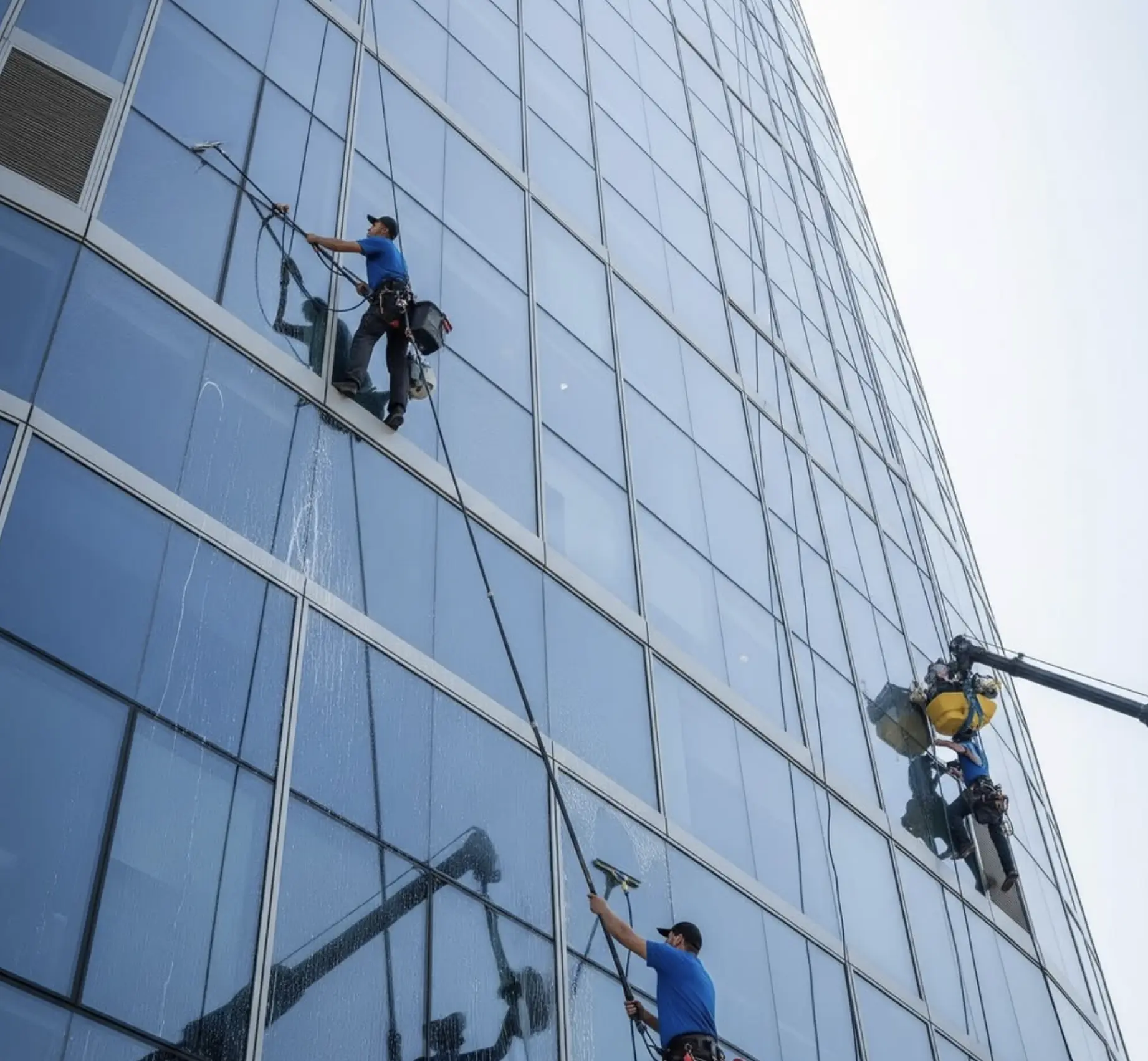
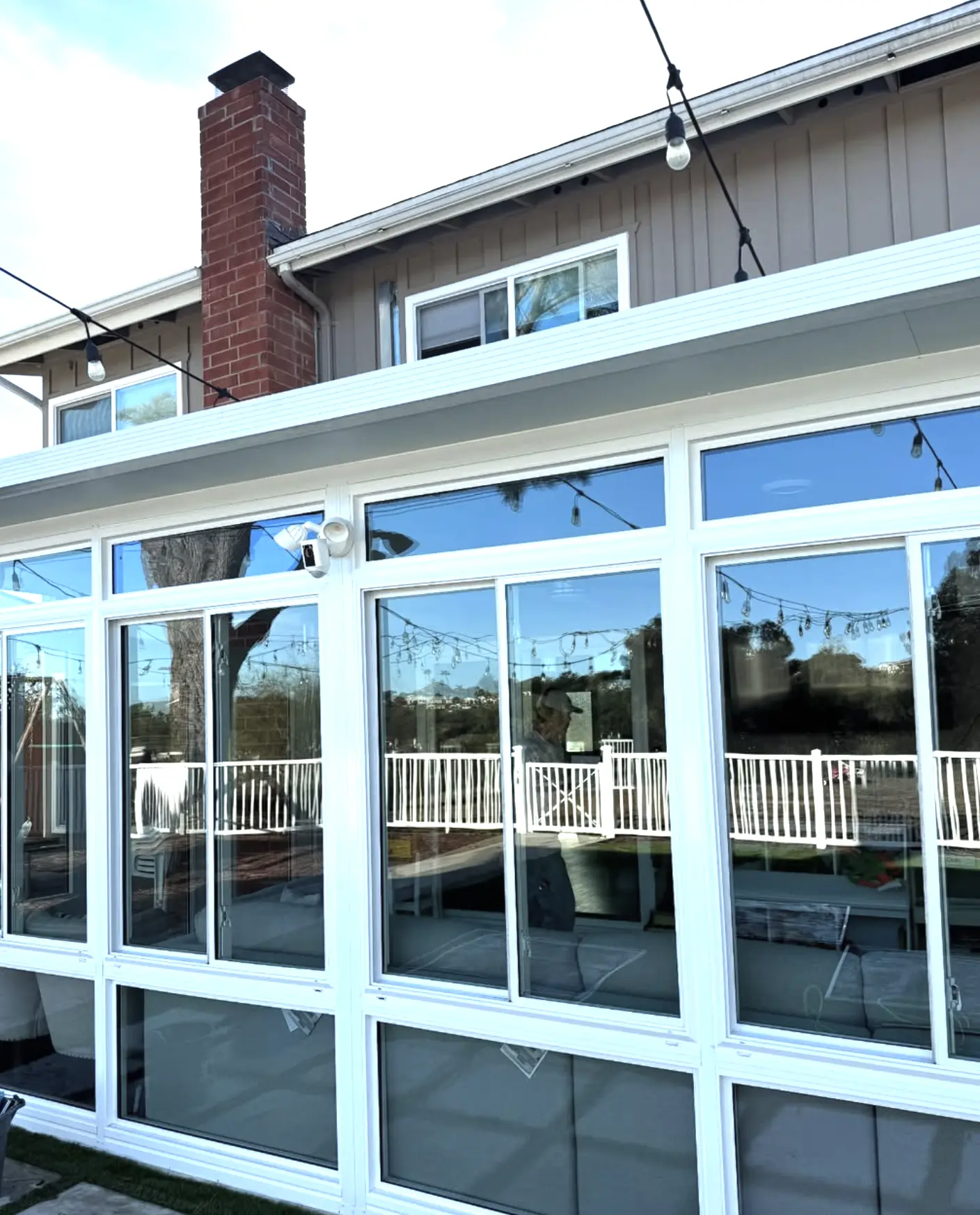
Other Common Techniques
We’ve used a wide range of methods depending on weather, job complexity, and access.
You’ll often see pros using:
- Spray bottles with window cleaning solution for smaller areas
- Razor blades (carefully!) for tough grime and paint removal
- Dry microfiber cloth or clean cotton towel for detailing
- Homemade solutions (like white vinegar + a drop of dish soap) on fragile glass
- Scrub brushes and soft brushes for stubborn muck in window tracks
Just remember — use a dry cloth to buff out any streaks and avoid abrasive chemicals or mineral spirits unless absolutely necessary.
Pro Window Cleaning Solutions Explained
Whether it’s a residential home or commercial property, the best results come down to using the right window cleaning detergents.
Our favourites:
- Warm water and liquid dish soap
- White vinegar mixed with distilled water for an affordable window cleaning solution
- Commercial window cleaning solutions with anti-static additives
- Plain water for a rinse on a sunny day (so it dries without spots)
We always tailor our solution to the glass surface, local weather conditions, and the type of grime we’re facing — be it mozzie splatter, tough spots, or mineral buildup.
Not sure which method is right for your glass? The Window Cleaning Melbourne Crew has tackled everything from sun-soaked skylights in St Kilda to storm-battered balconies in Brunswick — we’ll sort it out.
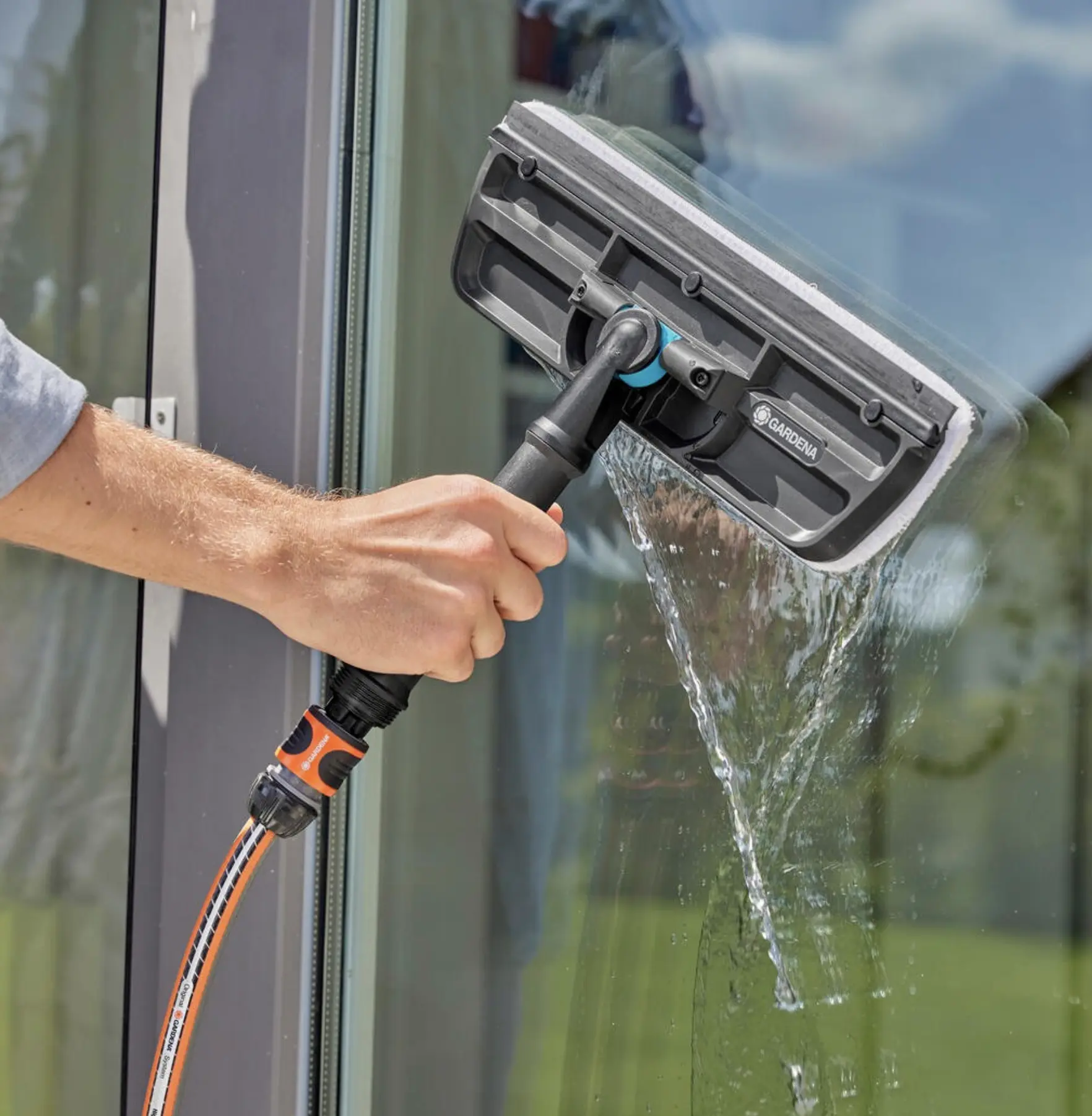
Our Go-To Method (Based on Job Type)
For Homes:
- Ground-level windows – Squeegee + soapy water
- Upper-storey outdoor windows – Water-fed poles + purified water
- Window sill and tracks – Microfibre cloths, scrub brush, or spray bottle
For High-Rises:
- Glass facades – High-rise window cleaning using rope access window cleaners
- Tough grime – Start with soapy water, finish with a dry microfibre cloth
- Safety – Always use seat window washers, cherry pickers, and safety harnesses
For Commercial:
- Care facilities – Routine cleanings with a gentle solution for hygiene-sensitive zones
- Retail – High-speed window washing for foot traffic appeal
- Construction glass – Use a glass scraper and a razor blade for grime on window frames
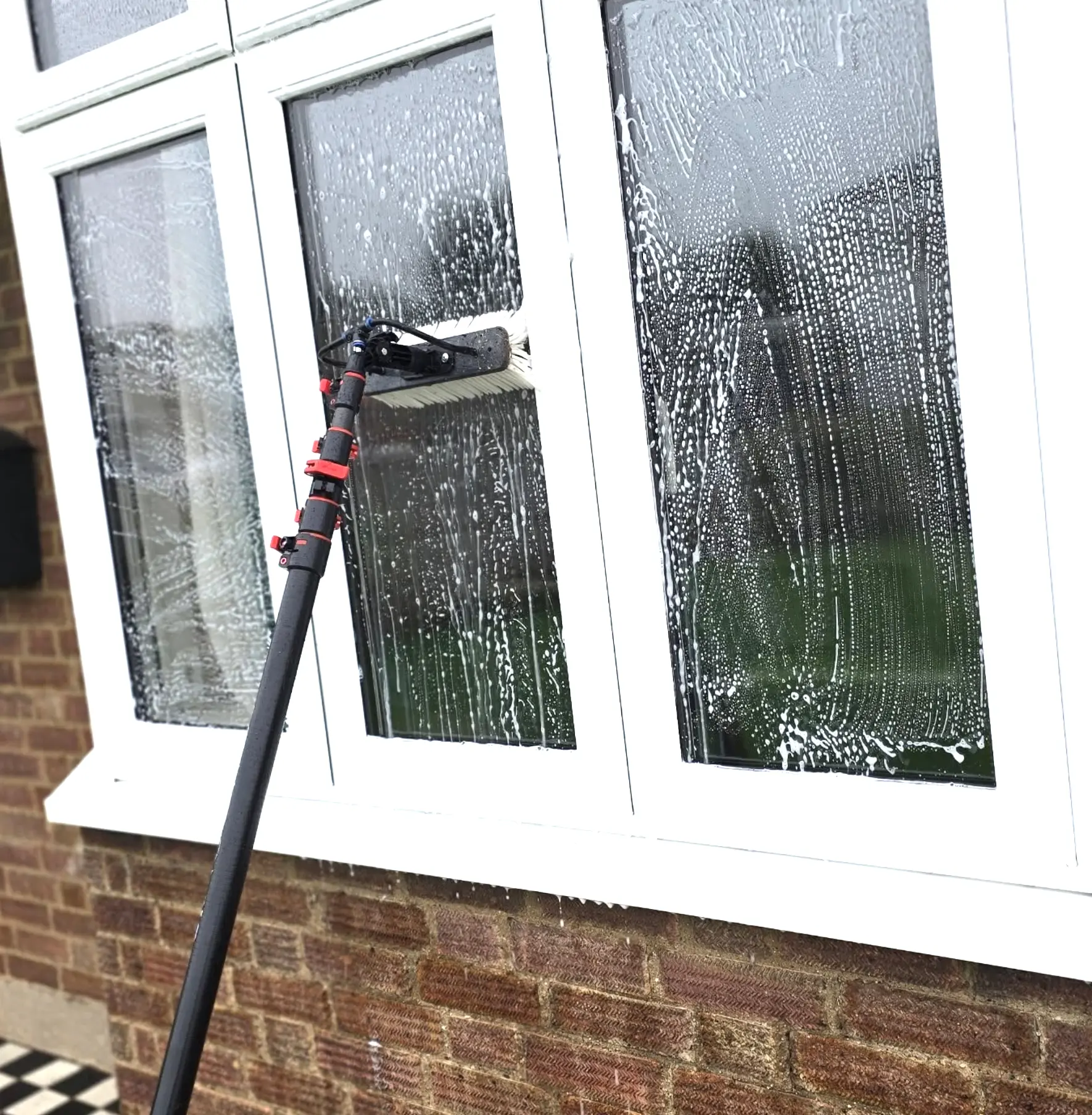
Pro Tips That Make All the Difference
You’ve got the gear. You’ve got the chemicals. Now here’s how to avoid a dodgy as finish:
- Work top to bottom to avoid dirty runoff
- Wipe edges and corners to prevent water stains
- Use horizontal strokes on one side, vertical strokes on the other — helps spot missed smears
- Always wear protective equipment
- Wash windows on a cloudy day — full sun dries water too fast and leaves streaks
- Avoid extreme pressure from pressure washers near window frames or types of glass that are delicate
- Bonus tip: Window screen cleaning tools help prevent dust resettling on freshly cleaned panes.
Don’t Trust Just One Method
Any professional window cleaner worth their salt knows — there’s no “one-size-fits-all.” Some jobs are rough, some are high, and others are just plain weird (we once had to clean mirrored windows behind a birdcage — long story).
You need to adjust for:
- Weather conditions
- Type of glass surface
- Building use (e.g. care facilities, commercial property, residential)
- Dirt source (construction? ocean spray? pollen?)
- Access restrictions (high-rise, bow windows, tall buildings)
That’s why we train our crew to be window cleaning specialists, not just bucket carriers.
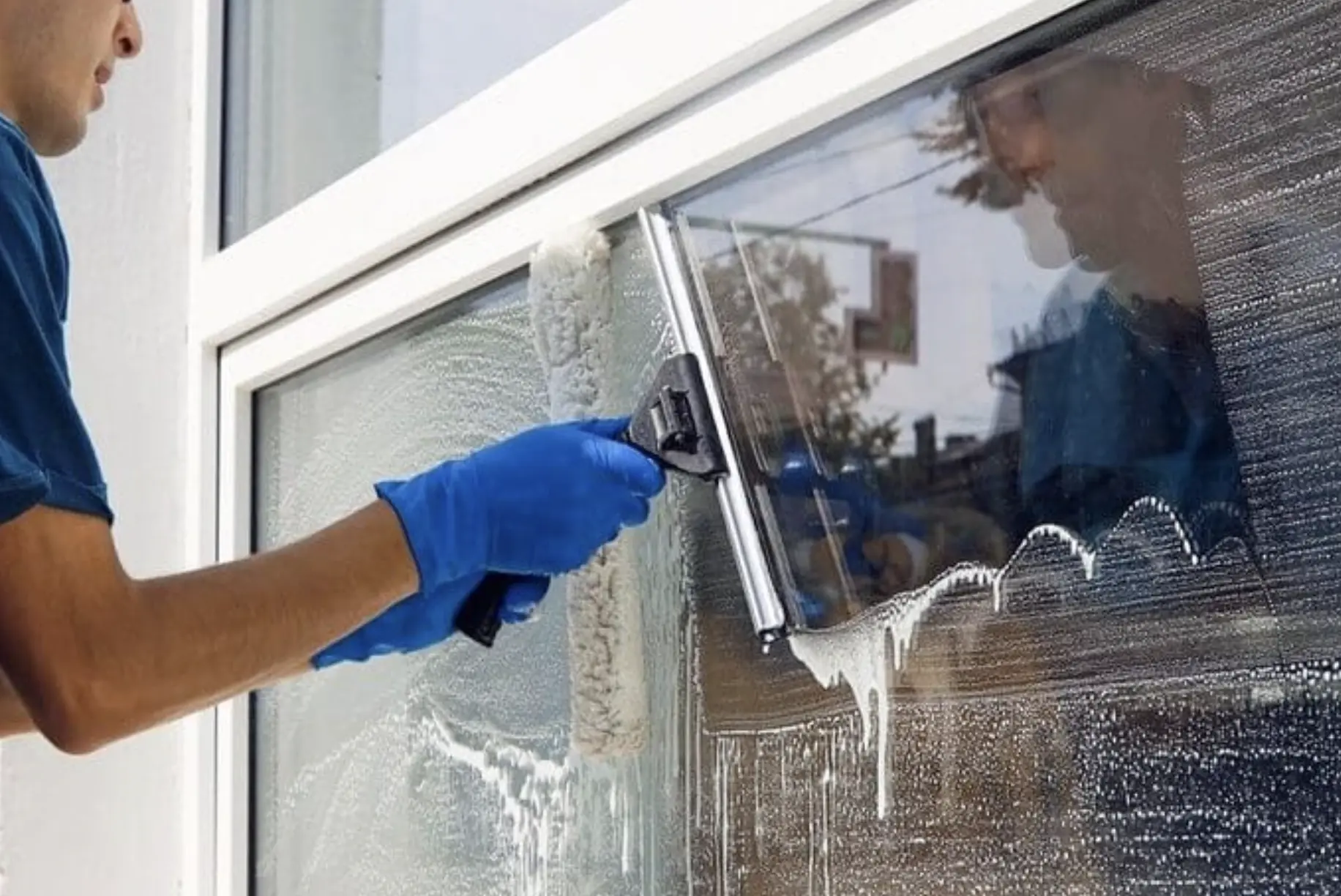
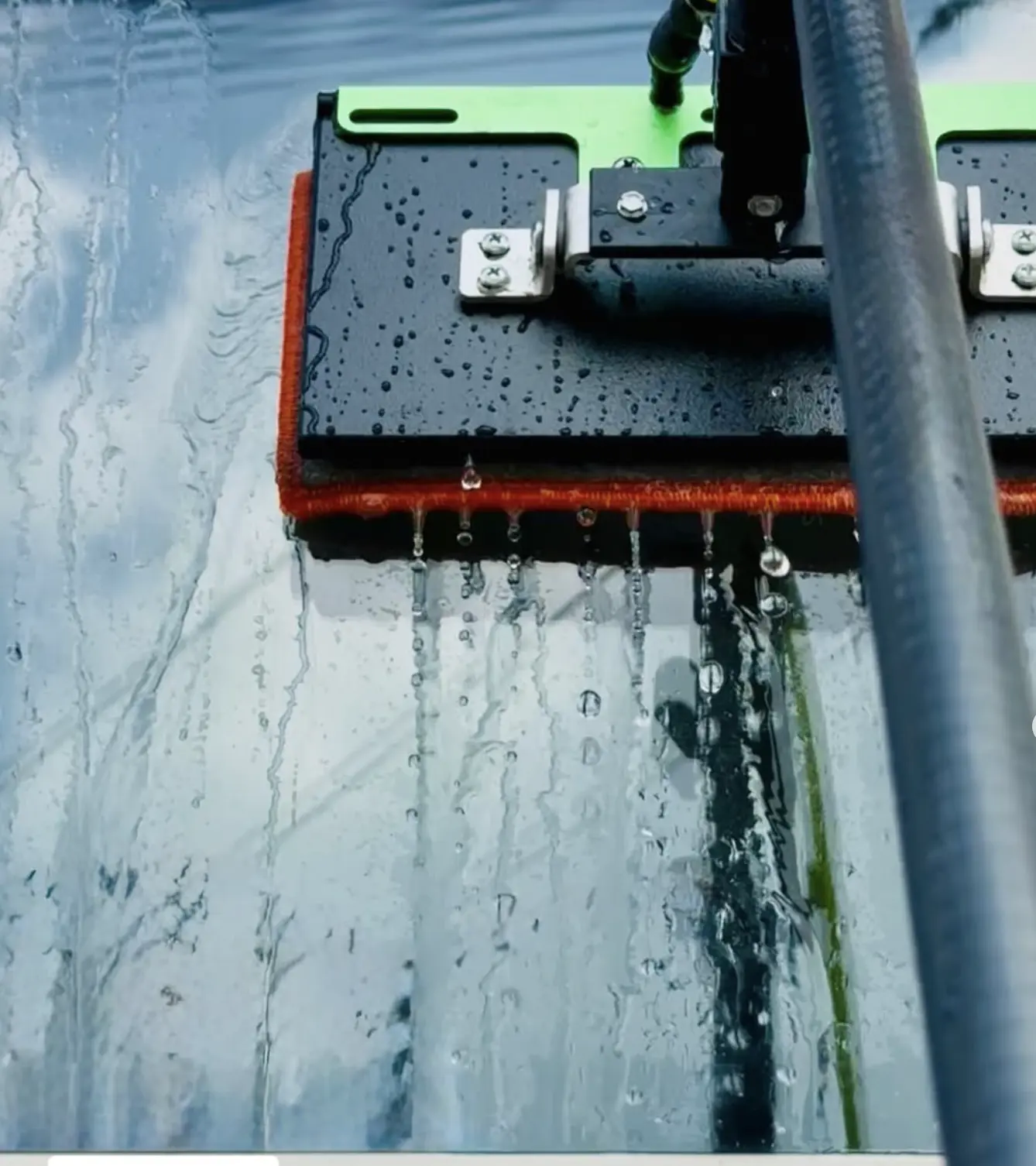
So What’s the Best Method?
Whether it’s High-rise window washing, a routine clean windows service for an office, or removing mineral buildup on a commercial space, the truth is — the best method is the one suited to the job.
But if you’re asking what we reach for first?
The squeegee wins. Every. Single. Time.
It’s fast, safe, and gives you that streak-free window cleaning finish you can’t fake.
Add a bit of purified water, a solid T-bar wand, and a clean surgical towel, and you’ve got a method that works on 95% of jobs across Australia.
FAQ
What’s the safest method to clean high-rise windows?
Rope access window cleaning with trained high-rise window cleaners and proper safety harnesses is the safest and most efficient for tall buildings.
Is white vinegar really effective for window cleaning?
Yes, when mixed with distilled water and a drop of dish soap, it works great for fragile glass and leaves a streak-free shine — just don’t use too much vinegar.
Why are water-fed poles used for commercial windows?
They’re safe, chemical-free, and perfect for high-rise buildings where purified water dries without streaks.
Can I use pressure washing on glass?
Only on robust exterior windows and never on scratch-sensitive or tempered glass. Avoid using extreme pressure near window edges or seals.
How often should I clean my windows?
For most homes, every 3–6 months. Commercial spaces or care facilities may need monthly cleans, especially to maintain a clean, aesthetic appeal and meet hygiene standards.






